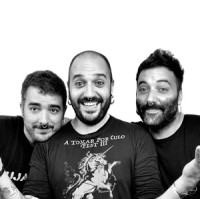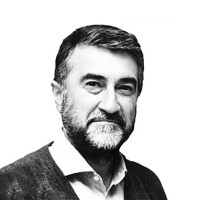Learning from a special peace-building process
Today, 8 April, it is four years since Basque civil society developed its most important initiative in the peace building process: Facilitate the civil disarmament of ETA. Twelve months later, at the Kanbo International Conference, a decisive step was taken to verify the dissolution of ETA.
A dangerous initiative, no doubt. From Ipar Euskal Herria, the Bake Artisauak and Bake Bidea associations (member of the Social Forum) worked as facilitators and were supported by the international community and, in particular, by the International Verification Commission (ICC).
In 2021, the International Conference of Aiete, organized by Lokarri, will be 10 years old and uncovered by the discreet work that many actors have been doing since years ago. It is therefore a good time to focus on the contribution of civil society to this process. This level of involvement of civil society makes this process very special from the point of view of international actors working in conflict resolution.
We are talking about the “peace building process”, a term created by Paul Ríos, as the classic term “peace process” does not generate the necessary consensus. In fact, in most traditional peace processes — the negotiating table, international guarantors and solemn agreements — one of the negative aspects repeated in subsequent balances is the character of spectator given to society. Thus, when these processes have difficulties, the direct consequence is that social agents adopt a passive attitude.
"This level of involvement of civil society makes this process very special from the point of view of international actors working in conflict resolution"
In this sense, today we want to highlight three lessons:
The role of civil society
In the Basque case, once the Aiqa-Oslo process has failed, civil society decides to move from being a spectator to an actor. A first broad political and social agreement was reached on the recommendations of the 2013 Social Forum organized by Lokarri and Bake Bidea. In Ipar Euskal Herria, in 2014, the Baiona Agreement agreed on a roadmap of its own.
If civil society was an active agent that helped to create the objective and subjective conditions for reaching the Aiqa-Oslo process, it has since 2013 become an agent that has helped to resolve the consequences of the cycle of violence.
Thanks to the recommendations of the five Social Forums that have been held, the engine of the process has been able to continue to function, helping to identify at all times when the flu occurred. In short: III. The Social Forum (2016) proposed overcoming the blockade by means of a disarmament that would reach the hands of civil society; Berghof Foundation presented at Gernika this novel proposal that, when we made discreet presentations, surprised international actors and local institutional, political and trade union actors. On the other hand, the II Durango Fair ended with the exhibition of group A. (2014) and IV. (2017-2018) The contribution of the Social Forums was linked to the process of reinsertion of prisoners, exiles and deportees – we have already begun to see the first results – and focused on the construction of democratic coexistence in the Fifth Social Forum. Contribution from the Social Forum (2018)
From bilaterality to multilaterality, through unilaterality
Traditional peace agreements are based on a bilateral agreement with the participation of international guarantors, but here our process has gone through three phases and has taken the form of saw teeth.
The Aiqa-Oslo process was the result of bilaterality, but the blockade that followed pushed one party to take unilateral steps, with the objective of creating the conditions to be able to follow other steps.
And that dynamic has led us to the current paradigm, in the three knots that remain to be liberated: the rights of all victims; prisoners, refugees and deportees; and inclusive critical memory. Today, we are in a multilateral process in which the various institutional, political, social and trade union actors are making a great deal of input. An example of this is the many agreements that have been adopted in the institutions and through public statements in relation to the first two knots mentioned.
From 2017 onwards, other political and trade union sectors that until then remained outside the negotiations have been incorporated into these agreements. An example of this is the contributions we are receiving in the participatory process “Social Commitment”.
From triangulation to microagreements
We live in a complex country, where the backpack everyone has to carry is very heavy, the suspicions cross, and all that makes it very difficult to reach sound agreements.
However, with civil disarmament and, to a lesser extent, with dissolution, the guarantee of success was achieved through the triangulation of agreements between the institutions, civil society and the international community. In this work, the three actors demonstrated that, regardless of their distrust for a moment, they can achieve great things together.
And in this situation, since 2018, the positive method for moving forward is micro-agreements. Four years ago, could anyone imagine that all parties could recognize the rights to truth, justice and reparation to all victims? Or the agreements already made on prisoners? Or the agreements that have now been made on the case of Mikel Zabraise?
"Much progress has been made. More importantly, a method of solution has been established as an appropriate instrument: consensus among institutional, political, trade union and social actors".
We know that there are actors who criticise us for being too optimistic, but, being objective, much progress has been made. More importantly, a method of solution has been established as an appropriate instrument: agreements between institutional, political, trade union and social actors.
The construction of these consensuses has been the result of a textile work of thin, discrete and discrete yarns, away from the foci, both inside and outside the institutions, creating spaces for public and private meetings and dialogue.
These meeting points, despite the difficulties, have created spaces of trust and have been able to value what the agents unite in the face of what distinguishes them. These consensuses have been spaces that have created objective conditions for their staging in a suitable context in different ways.
The Permanent Social Forum has been convinced that, without such rigorous and lengthy “cooking” work, it would be more difficult to reach the current consensus on the above points.
We're not fools. We are aware that the battle of the story continues to condition the process and prevents progress in the third knot, inclusive critical memory. We know from experience that discrepancies have more media coverage than agreements.
But so far we have come precisely because of our perseverance as a society. Let us put our disappointment aside. In 2021, we continue to work for the peace building process to take further steps. Social cohesion demands that of us.
Bidali zure iritzi artikuluak iritzia@argia.eus helbide elektronikora
ARGIAk ez du zertan bat etorri artikuluen edukiarekin. Idatzien gehienezko luzera 4.500 karakterekoa da (espazioak barne). Idazkera aldetik gutxieneko zuzentasun bat beharrezkoa da: batetik, ARGIAk ezin du hartu zuzenketa sakona egiteko lanik; bestetik, egitekotan edukia nahi gabe aldatzeko arriskua dago. ARGIAk azaleko zuzenketak edo moldaketak egingo dizkie artikuluei, behar izanez gero.
Public education teachers have the need and the right to update and improve the work agreement that has not been renewed in fifteen years. For this, we should be immersed in a real negotiation, but the reality is deplorable. In a negotiation, the agreement of all parties must be... [+]
Economists love the charts that represent the behaviors of the markets, which are curves. I was struck by the analogy of author Cory Doctorow in the article “The future of Amazon coders is the present of Amazon warehouse workers” on the Pluralistic website. He researches the... [+]
The Leioa School of Education was full of students last Wednesday because Samantha Hudson was coming. She is a transgender Mallorcan artist, singer and influencer born in 1999. The star of the People Singing Encounters had an endless line to give selfies and autographs, and his... [+]
I have to confess a sin here. Four years ago, I introduced a new habit into my life: on Sunday nights, I began to watch the ultra-right television channel CNews, which spreads continuous "information" like a cannon of shit. What was at first half an hour a week, has at any given... [+]
There are amazing coincidences in life. How many spectators could meet at the Arriaga Theatre? How many bathrooms are there on each floor? How likely is it that two women from Guipúzcoa coincide in the same place and in the same instant, after 35 years of not seeing each... [+]
Transfeminism has brought clarity and complexity to discussions about bodies, genders and desires. It also created shadows. In the name of a supposed radical political coherence – often linked to a very specific hegemony – some transfeminist discourses reproduce logics of... [+]
Garai kuriosoak bizi ditugu eta bizi gaituzte, zinez. Hezkuntza krisian dela dioten garaiak dira eta, gutxien-gutxienean, aliritzira, ba aizue, 2.361 urte ditu gaurgero boladatxoak.
Ez zen ba debalde joan Aristoteles bere maisu maite Platonen akademiatik lizeo bat muntatzeko... [+]
The causes of the initial war in Ukraine are not only those that were explained to us, because there are other reasons. Russia said it had to take a step in the defense of Ukrainian Russian speakers, while the Ukrainian government had to confront the Russian army in order to... [+]
A few weeks ago, on Diputación Street, in the centre of Vitoria-Gasteiz, two men threw a homeless person off the small landing outside the place where he slept. In addition to being thrown away, a metal railing was immediately placed in front of the lonja. Although the place... [+]
Egypt ' s urban planning plan for the Gaza Strip has recently been expanded. A drawing shows the streets, buildings and imagery of the future on a reality that still smells of shrapnel and explosives. The urban planning proposal, used as another bomb shot. Individual house... [+]
Bizitza erdigunean jartzeko abagunea ikusi genuen feministok zein ekologistok Covid-19 pandemia garaian. Ez ginen inozoak, bagenekien boteretsuak eta herritar asko gustura itzuliko zirela betiko normaltasunera. Bereziki, konfinamendu samurra pasa zutenak haien txaletetan edo... [+]
Segurtasun falta dagoen irudipena handitu dela azaldu du Eustaten azken txostenak. Gurean, Trapagaranen, Segurtasuna orain, delinkuenteen aurka manifestaziora deitu dute herritar batzuek.
Bi izan dira sentsazio hori zabaltzeko arrazoiak. Batetik, udalak Udaltzaingoaren... [+]
There are those who subscribe to portals to sell their homes because they would like to buy a house. From time to time they even make appointments to see the houses, and I am sure that the seller knows that these people will not buy the house, not because they find it in the... [+]



















